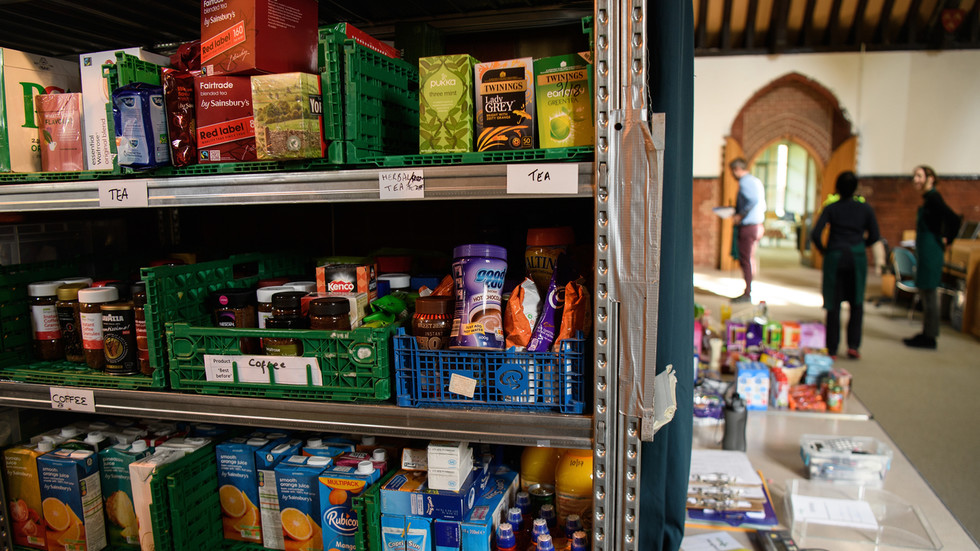
Some service members feel “angry and frustrated” after being forced to rely on charity, Sky News claims

FILE PHOTO: Volunteers at Wandsworth foodbank prepare parcels for guests from their stores of donated food, toiletries and other items in London, England. © Leon Neal / Getty Images
Some members of the British military are increasingly relying on food banks to make ends meet amid high inflation and a cost-of-living crisis, Sky News reported on Monday.
According to one source cited by the broadcaster, an unofficial food bank was set up at a Royal Air Force (RAF) base in eastern England to support local civilians, but ended up also being used by service members.
Sky also cited an internal RAF document which claimed that some personnel are being forced to choose between “food or fuel,” while some have been unable to afford trips home to see their families. The report also described one single mother working for the RAF who went without a hot meal for four days because she had spent her last money on feeding her baby.
Some RAF members reportedly cannot afford to pay for food despite their meals being subsidized by the government. All RAF personnel can currently take advantage of a weekly £38 ($48) subsidy which can be used to buy meals at bases.

Read more
An anonymous quote in the RAF document reportedly stated that “the food bank is popular,” with a footnote elaborating that while the issue “is reported across a majority of units,” it is still not widespread.
Commenting on the problem, which is said to be present in other branches of the military, one source told Sky News that service members feel “incredibly angry and frustrated” that some personnel “had to rely on charitable agencies just to exist.”
The report also stated that some cash-strapped service members “are struggling to afford fuel to drive to work” and are “unable to travel home each week” to see their loved ones, resulting in reduced morale.
Earlier this month, the UK Ministry of Defence published a survey which found that 42% of British military personnel are satisfied with life in the services – down from 50% one year previously. The issues listed included poor housing and low wages.




